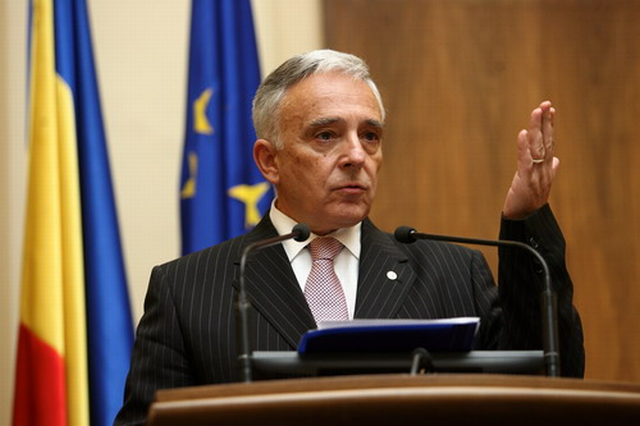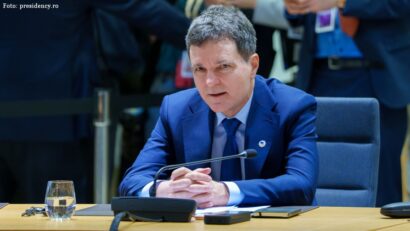The national bank governor on the Romanian economy
Romania, a former Communist state in the east of Europe, is the only EU member that set the year 2019 as the deadline for adopting the euro

România Internațional, 30.04.2015, 13:40
Romania’s Eurozone accession on January 1st 2019 is a very ambitious target and has to be prepared rigorously, said the governor of the National Bank of Romania, Mugur Isarescu, at a conference on country risk held in Bucharest by the COFACE international assessment agency. He claims Romania should finalize major economic policy adjustments before entering the exchange rate mechanisms that precede the Eurozone accession, mainly by eliminating those sources that put great pressure on the economy. Here is Mugur Isarescu:
“I first and foremost intend to eliminate the sources of suppressed inflation, and relevant in this case would be the finalization of the energy market liberalization. Secondly I would eliminate quasi-fiscal deficits deriving from restructuring state-owned enterprises reporting major losses, and thirdly, I would eliminate other future sources of pressure on the budget, such as unavoidable expenses for the modernization of road infrastructure”.
Moreover, the national bank governor added, Romania should make monetary adjustments. Technically, Mugur Isarescu went on to explain, the target date, namely the year 2019, set by Romanian authorities, entails entering the exchange rate mechanism as of January 1st 2016, but this requires a certain level of economic development. On the other hand, Mugur Isarescu has drawn attention that Romania, a former Communist country in Eastern Europe, is the only EU member to have set a date for Eurozone accession.
He added that the Eurozone accession timetable needs to be assessed in the context in which other countries in the region, such as Bulgaria, the Czech Republic, Poland, Croatia and Hungary, are on stand-by as regards Eurozone accession. The participants in the COFACE conference held in Bucharest have in their turn said that Romania’s joining the Eurozone in 2019 would be very difficult to achieve. However they believe the measures stipulated by the new Fiscal Code will boost short-term economic growth as well as consumption. Consumption is on an ascending trend already and this could create the potential for future imbalances, thus delaying the process of Eurozone accession. At the same time they have drawn the attention of the Government that the Romanian economy needs investments to be able to boost the GDP growth in order to make up for the gaps separating Romania from western countries.






























